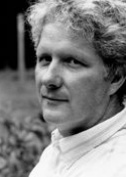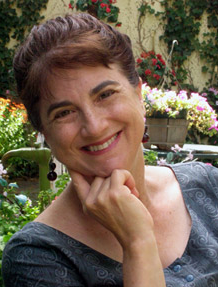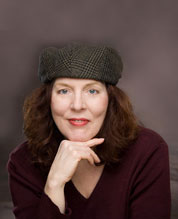When I arrived at the Hallmark Inn & Resort last Friday the receptionist looked at me in that particular way that tells an experienced traveler that they’ve screwed up your reservations.
Rats, I said to myself, mimicking Molly Adair, my main character. And then I asked myself, What Would Molly Do? If Molly felt as desperate as I did at that moment, she just might have clobbered the receptionist with her practice stick. Fortunately for the woman, whose look had darkened even further, I’m not Molly. I smiled sweetly and waited for the verdict. Several minutes and many key tappings later she informed me that I was supposed to have arrived on Thursday and was scheduled to leave on Saturday. They’d already rented my room for Saturday.
“Why would I do that?” I asked. “The conference goes until Sunday.”
“I’ve found you another room,” she continued. “We won’t charge you for the upgrade. It has an ocean view, Jacuzzi, and fireplace.”
Yes!

The conference was fabulous too. The theme was “Truth, Lies, & Risk” and my take-home lesson from the conference was that the theme or truth of a story should never be verbalized, but it must be evident.

Emily Whitman, author of Radiant Darkness, a YA fantasy about what really happened 
 My other favorite was the workshop on narrative voice, taught by the conference organizer Jessica Morrell. A writer isn’t really a writer until she has a voice, or distinctive manner of speaking. When I had friends read the first draft of Forging the Blade they said they could hear my voice in the sentences. This was nice, but my main character was a fifteen-year-old girl. The voice didn’t match the character, so I had to change it.
My other favorite was the workshop on narrative voice, taught by the conference organizer Jessica Morrell. A writer isn’t really a writer until she has a voice, or distinctive manner of speaking. When I had friends read the first draft of Forging the Blade they said they could hear my voice in the sentences. This was nice, but my main character was a fifteen-year-old girl. The voice didn’t match the character, so I had to change it.
The other workshops were also excellent. Jessica interviews Randall Platt, Deborah Reed, and Adam O’Conner Rodriguez, editor of Hawthorne Books, in the Summer in Words, 2011 blog.
Just getting to talk to these authors was inspiring. But they didn’t get where were by sitting around being inspiring. They all worked hard and smart to get published. And took plenty of risks. That was my other take-home lesson.
I read the first seven pages of my second manuscript, Molly Adair, Beware, out loud to some of the conference attendees and workshop presenters. Once I got started the jitters calmed and I actually enjoyed it. They liked the concept of a school of magic hidden inside a public school, but they wanted the action to start more immediately and suggested a chapter break to add emphasis to a revelation.
I also learned that there is a woman who lives just two blocks from me who has a son that just graduated from Grant High School. My sons graduated from Grant eleven years ago. She writes YA fantasy. So do I. And her next book is set at Grant. So is mine. Networking is amazing. I need to meet this woman!



4 thoughts on “Summer in Words, 2011”
Sounds like an excellent workshop. I am so thrilled that you are making the writing happen!
The writing is happening.
Now all I have to do is get it published.
And then all I have to do is sell it. 🙂
Sounds like an excellent workshop. I am so thrilled that you are making the writing happen!
The writing is happening.
Now all I have to do is get it published.
And then all I have to do is sell it. 🙂